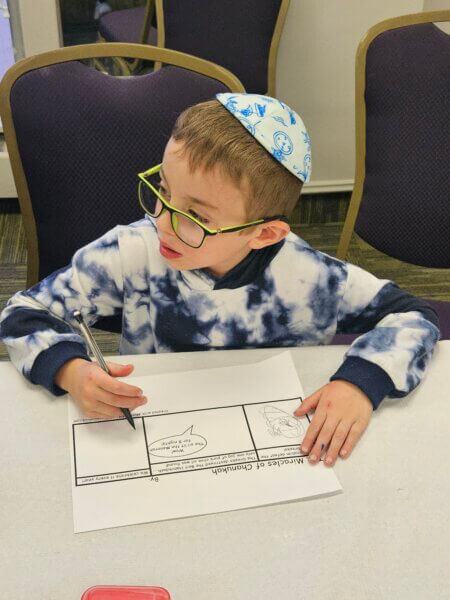By Rabbi Nussbaum
VOLUME 98 NUMBER 6
November 21, 2020
Kislev 4, 5781
PARSHAS TOLDOS
Candlelighting Time 4:21 PM
When it came time for Yitzchok to bless his children he was blind. The Midrash provides a variety of reasons why this occurred. One of them is for Yaakov to receive his father’s blessing. Yitzchok had intended to convey his blessing to Eisav, therefore Hashem orchestrated that Yaakov could stealthily receive the blessing instead. Why all the secrecy?
Furthermore, Rivka was knee-deep involved in this clandestine operation to obtain the blessing of Yitzchok for Yaakov. Nachmonides explains that Rivka knew that the blessing was intended for Yaakov and not for Eisav. When she was expecting them, she was overwrought with pain and went to the Beis Midrash of Shem to question why she is suffering so much? In that conversation she was told that the older child will serve the younger one. Therefore, she was aware of Yaakov’s status and Eisav was to be subservient to him. She did not inform Yitzchok of this message because she knew that since he possessed prophetic capabilities, she assumed that he knew of the revelation she had received from Shem. Although she realized that Yitzchok still intended to bless Eisav, nonetheless she reasoned that to apprise him at this late date of her knowledge would not be productive.
However, we still need to understand why did Yaakov receive the blessing of his father in such a seemingly underhanded fashion? S’fas Emes provides a fascinating insight into this episode. Even though we need to partake of this world’s bounty, still we must only utilize the gifts afforded us in an offhanded manner. Our true and primary calling is to excel in the spiritual realm and overindulging in the physicality of this world has the potential to harm our most innermost possession, our soul. Therefore, Yaakov had to ‘take’ the blessing from his father indirectly and as a result, even though those physical enhancements of life would be afforded to Yaakov, however, not as a primary source, rather on a contingency basis, when the necessity would present itself.
And this is the lesson that we glean from this parsha, that we must value the bounty of life that we merit, however, it must be utilized in a productive and healthy manner. Hashem may have entrusted us with wealth, but not as an end unto itself, rather to accomplish his Will. When we spend our resources frivolously, we have abused that which Hashem has been kind enough to provide us with. However, when we spread our wealth assisting worthy Torah institutions, then we have allocated those funds in an appropriate manner. And we can extend this idea to resources other than financial means. Perhaps a person is endowed with a beautiful voice. He can certainly enhance the davening in his respective shul by leading the shul when they daven. Or perhaps when he is at a simcha, his participation can tremendously add to the festivities.
Perhaps we may also add that Rivka was foresighted enough to attend to her agenda with the realization of its importance. She might have been stifled due to Yitzchok’s seemingly contrary approach. He intended to bless Eisav and that might have convinced Rivka that she should not become involved. However, since she recognized the significance of her encounter with Shem, the prevailing Torah sage of her generation, that presented her with a mission that she understood that she must carry forth.
A BYTE FOR SHABBOS
Eisav forfeited his rights as the first born realizing that eventually he will die so why should he persist to remain with those entitlements. The righteous, on the other hand, view the expectation of death as a catalyst to spur them to use their lives as productively as possible. CHOFETZ CHAIM
GOOD SHABBOS



